Uncover the Hidden Treasures of the Rhône: Why Riviera Travel’s History and Art Cruise Will Transform Your Perspective in Just Four Days
Ever wondered what it feels like to sail not just across a river, but through the winding corridors of time itself? Boarding the MS Thomas Hardy with Riviera Travel, you’re not just setting off on any cruise — you’re embarking on an eight-day voyage upstream along the Rhône, from the medieval charm of Avignon all the way to the bustling heart of Lyon. Picture this: caveman’s woolly rhino sketches fade into the backdrop as you glide past Roman ruins whispering tales of conquest, eventually reaching scars etched from the upheavals of the Second World War. This isn’t your average float downriver; it’s an immersive journey through the very essence of civilization, peppered with stunning art, fortified palaces, and landscapes so rich they practically hum with history. So, ready to trade your everyday for a passage through millennia, all while swaying gently to the rhythm of the Rhône? Let’s set sail. LEARN MORE
Sailing upstream on the Rhône from Avignon to Lyon, on Riviera Travel‘s MS Thomas Hardy, is one of the world’s epic river cruises. It is an eight day voyage from Avignon that concludes in Lyon.
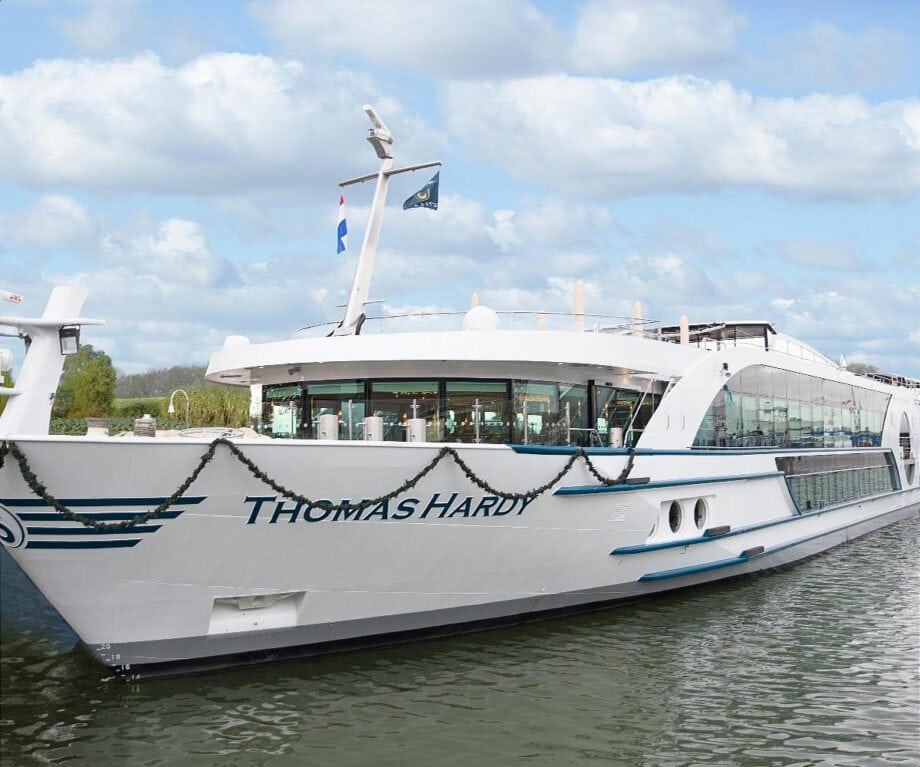

Cruising through time from caveman’s woolly rhino drawings, past crumbling relics of Roman conquests to Second World War destruction, this is more than a luxurious river cruise, it is a voyage through the very essence of civilisation.
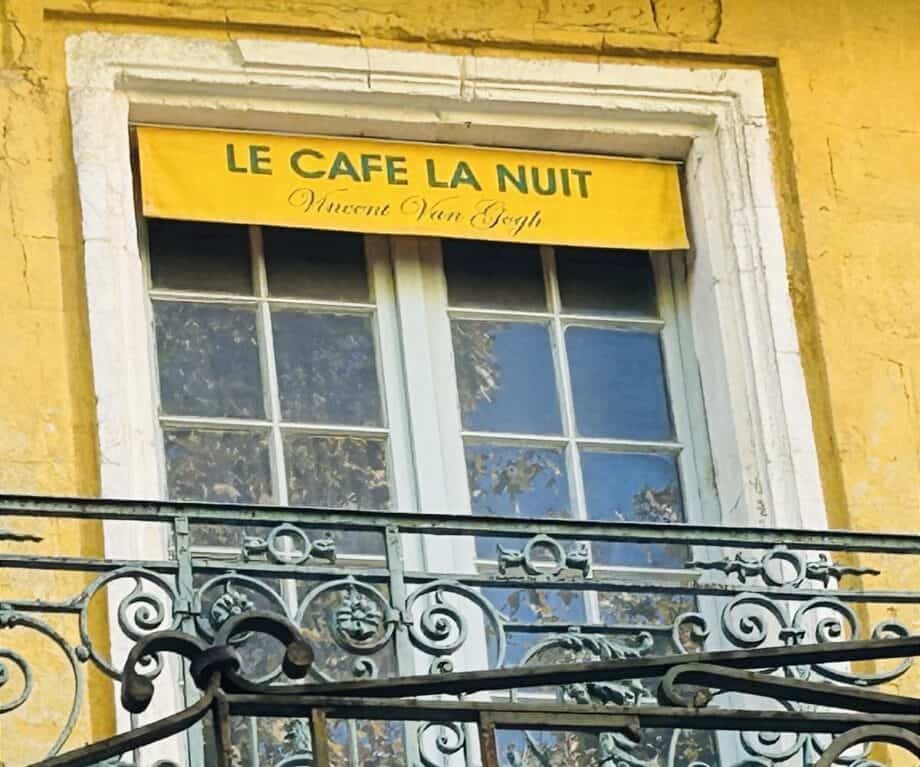

Rich in history, both beautiful and brutal, the Rhône displays the arrow-slit architecture of war; where even the papal palace was crenelated and where church bell towers were fortified.
Stories from the history of art abound. Through Chauvet’s cave drawings, Botticellis in Avignon and contemporary works in Arles’ Vincent Van Gogh Institute.
Day 1 – From London to Avignon
Riviera Travel arrange flights, from Heathrow in our case, booking us on a British airways flight, though other cruisers fly from regional airports or take Eurostar followed by the rapid TGV to Avignon.
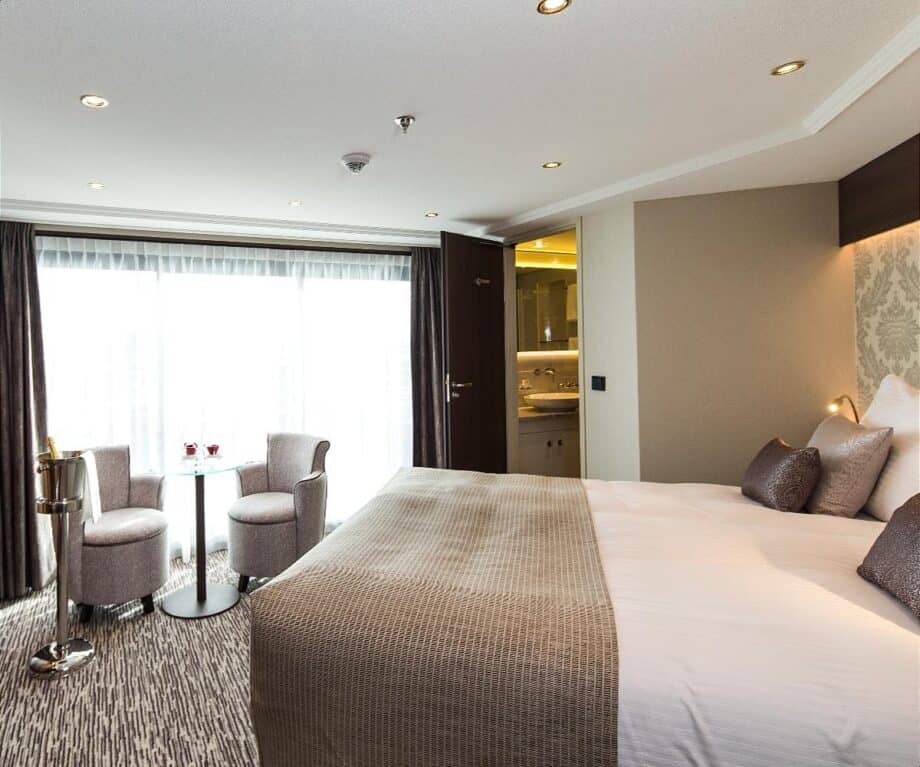

At Marseilles airport we are met and taken on a coach, for 70 minutes, through a landscape of olives, rosemary and thyme, towards hills that have hosted the Tour de France. We do not see our luggage again until the crew deliver it to our cabin. Riviera Travel deliver us straight to the MS Thomas Hardy: 135 metres of sleek, carefree luxury, moored at Avignon, within sight of the Middle Age city walls.
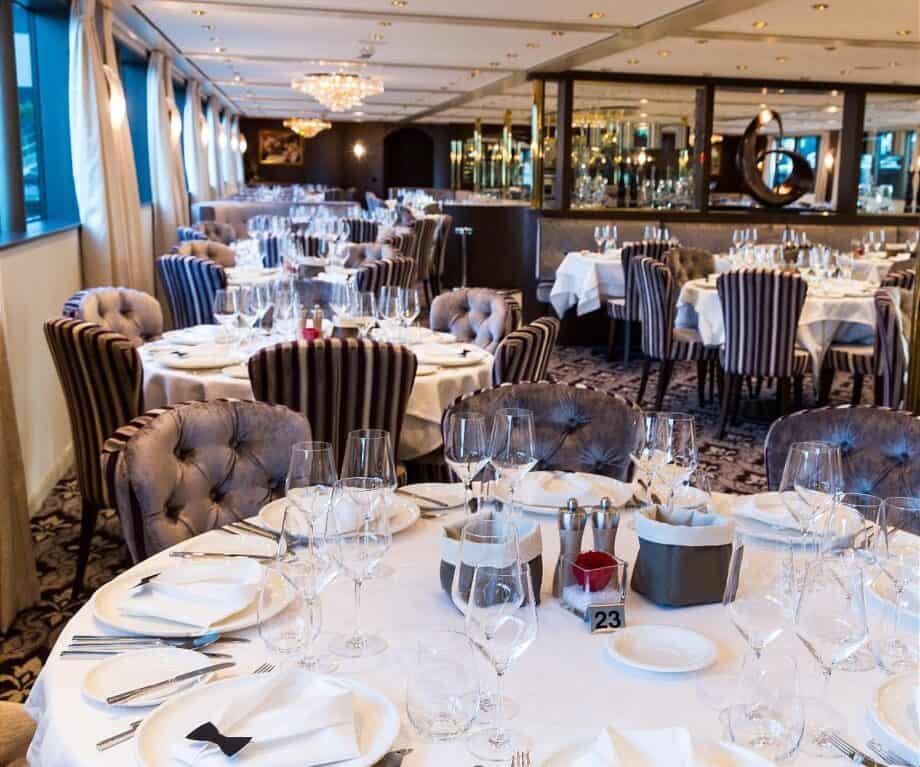

After an essential shower, nearly every guest arrives in the lounge for drinks. Cocktail and mocktail of the day are all-inclusive, as are a selection of beers, wines, spirits and soft drinks.


As it’s the first evening everyone dines in the restaurant with a choice of soup, three appetisers, six main courses and three desserts. Selected red, rose and white wines – again all inclusive – reflect our oenophile’s pilgrimage through some of France’s great wine regions: Cote du Rhône, Bordeaux, Burgundy.
Turn-down service is a surprising highlight of the day – not just because of the nightly chocolate – but also because the delivery of the daily programme reveals tomorrow’s cocktail of the day.
Day 2 – Avignon
It may have merely been papal propaganda that suggested Pope Boniface Vlll died from a punch. But the rumour confirmed that volatile Rome was unsafe. His French successor Clement V, pope from 1305 to 1314, eventually based himself in Avignon.
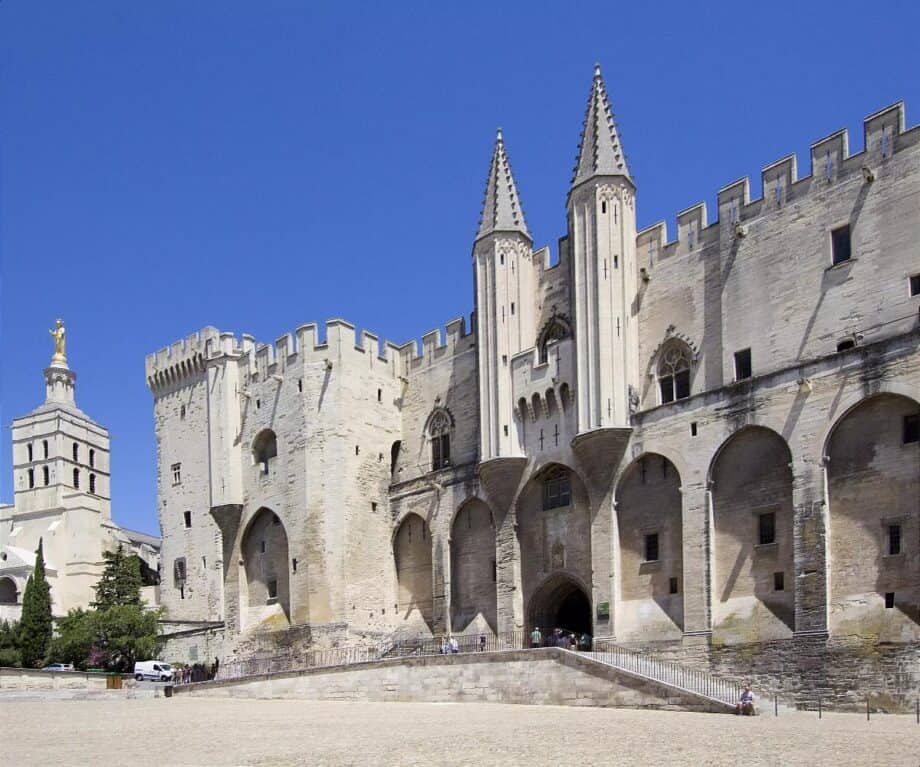

Clement’s successors built the Papal Palace where walls were sometimes three metres thick and where, in the banqueting hall, guests sat against the walls so that they could not be stabbed in the back. These were dangerous times. Only the Pope was permitted a knife to cut his meat.
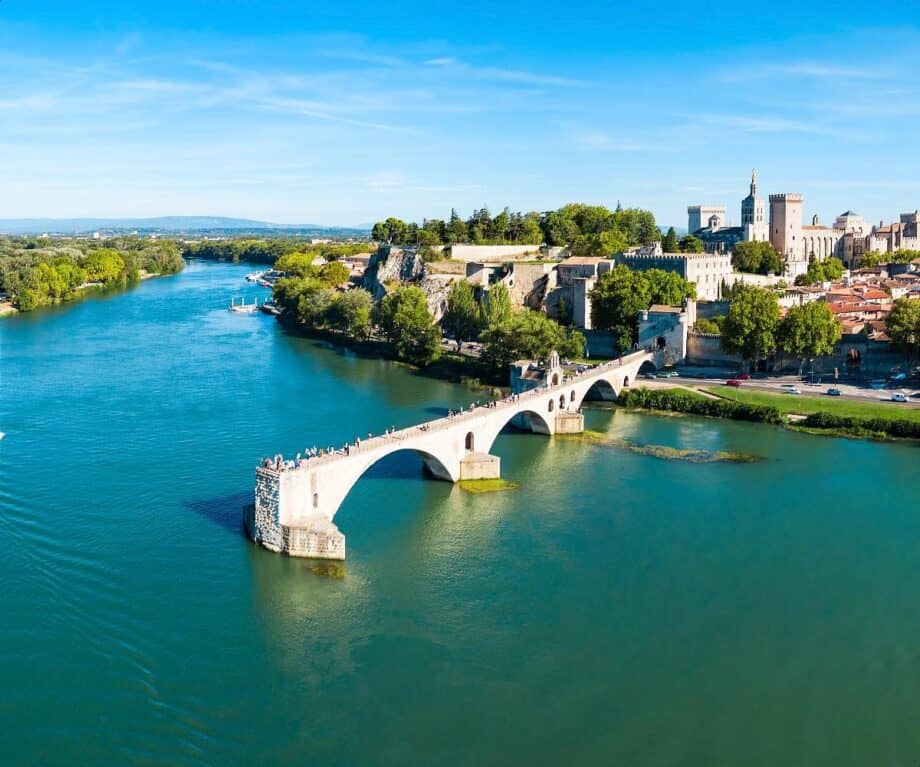

Appropriately our guide for a walking tour of Avignon is Clement. We begin by walking across the remaining four arches of Avignon’s famous bridge, 1668 floods swept away the rest of the bridge. Shattering childhood memories of singing in French lessons, Clement tells us that Sur le Pont d’Avignon was a mistranslation from the Provençal. In reality, people danced under the bridge.
If Clement were to appear on Mastermind, his specialist subject would probably be the era when Avignon was definitely home to seven popes. Possibly another two. Though those two were labelled antipopes, when the papacy returned to Rome in 1378. At one point there were four claimants to the papal throne.
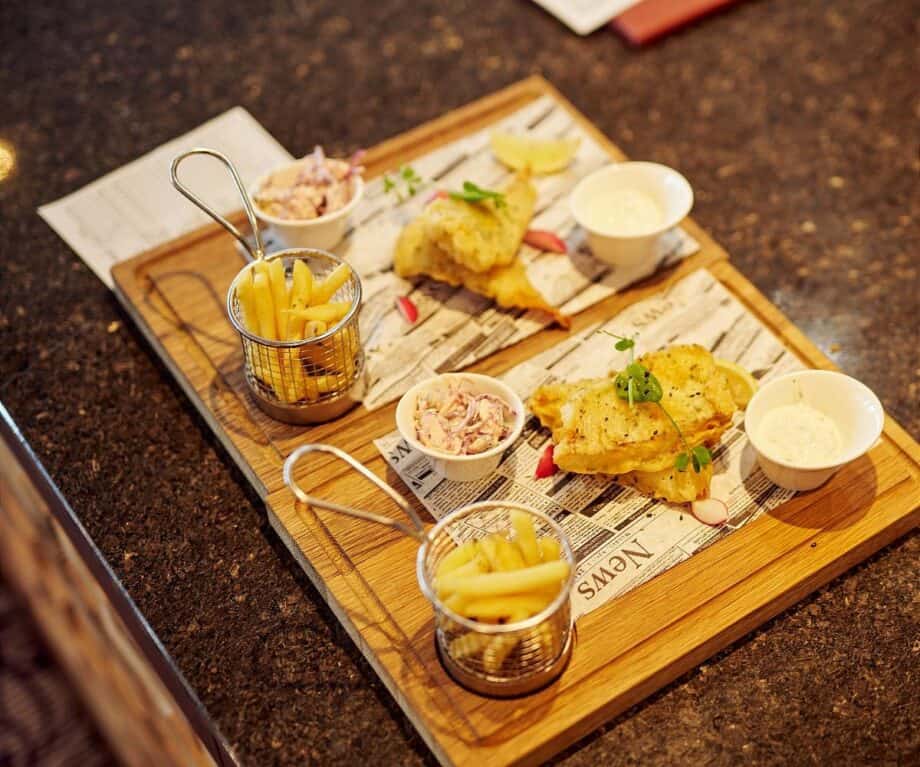

After lunch onboard, there is an opportunity to take a tour of the Petit Palace Museum with its collection of pre-Renaissance and early Renaissance art, including Botticellis.
Day 3 – Arles and the Pont du Gard
After Roman colonisation, Pliny the Elder said that this region of Southern France was “another Italy”. Elsa, our guide, tells us that Provence, where French was once the third language after Italian and Provençal, only became a part of France in 1841. With a 20,000 seat Roman amphitheatre, Roman ruins, and long sunlit days, the city still feels very Italian.
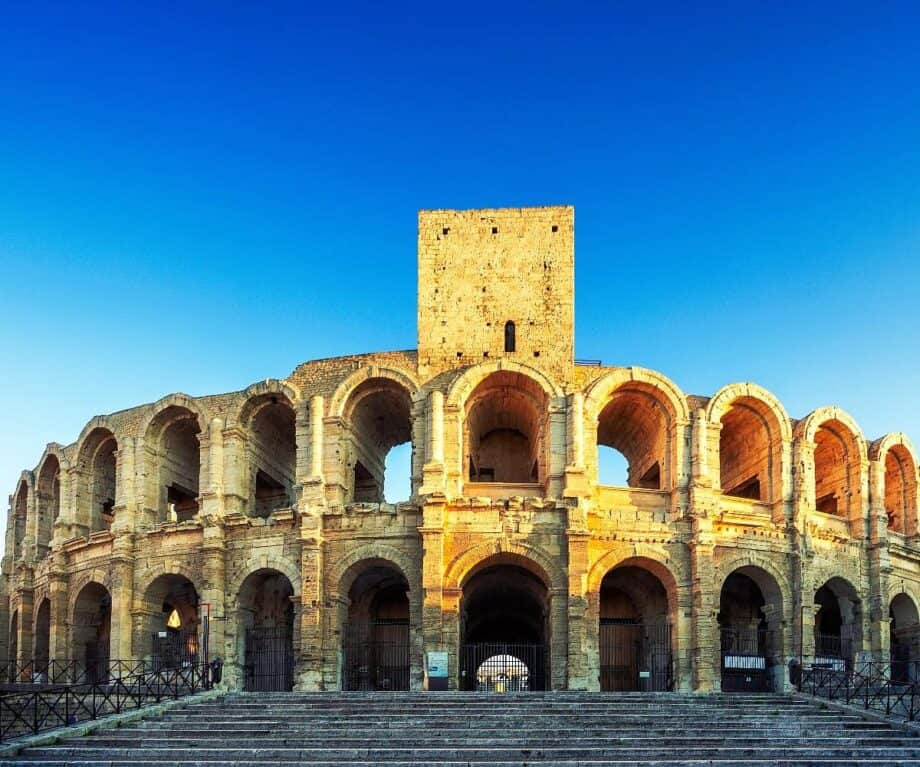

That light prompted an outstanding burst of Vincent Van Gogh creativity, over 300 pieces, oils and drawings, during his 15 months in Arles. Yet, sharing a house and absinthe-fuelled arguments with Gauguin, a troubled Van Gogh famously cut his off his ear lobe when Gauguin left Arles. Van Gogh’s favourite colours of blue and yellow still dominate the city.
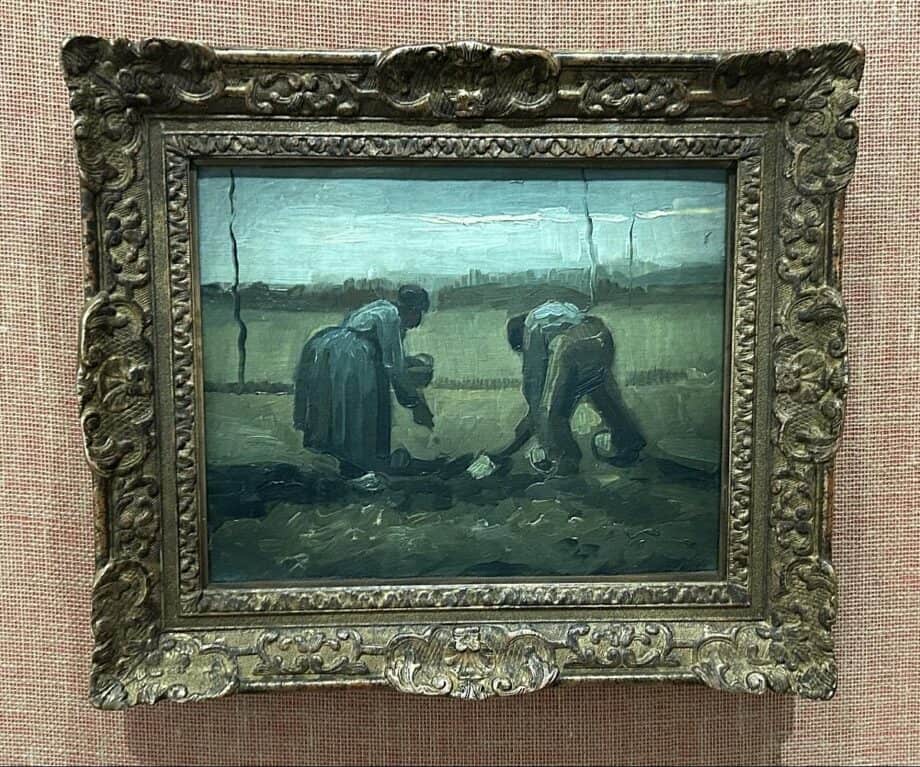

Our Riviera Travel’s walking tour of Arles includes admission to the Van Gogh Institute. Two potatoes themed Van Gogh oils introduce Beneath the Cobblestones, The Earth, a retrospective exhibition of the mixed media experimentation of Sigmar Polke.


An afternoon visit to the triple-tiered aqueduct Pont du Gard, its museum and 12-minute film presentation, illustrates how the Romans awed their colonies. Advanced engineering impressed with baths, cascades, fountains and above all, civilising good health.
Everything you need to plan your trip in 2025
.kb-row-layout-id200850_b13335-cf > .kt-row-column-wrap{align-content:start;}:where(.kb-row-layout-id200850_b13335-cf > .kt-row-column-wrap) > .wp-block-kadence-column{justify-content:start;}.kb-row-layout-id200850_b13335-cf > .kt-row-column-wrap{column-gap:var(–global-kb-gap-md, 2rem);row-gap:var(–global-kb-gap-md, 2rem);padding-top:var(–global-kb-spacing-sm, 1.5rem);padding-bottom:var(–global-kb-spacing-sm, 1.5rem);grid-template-columns:repeat(2, minmax(0, 1fr));}.kb-row-layout-id200850_b13335-cf > .kt-row-layout-overlay{opacity:0.30;}@media all and (max-width: 1024px){.kb-row-layout-id200850_b13335-cf > .kt-row-column-wrap{grid-template-columns:repeat(2, minmax(0, 1fr));}}@media all and (max-width: 767px){.kb-row-layout-id200850_b13335-cf > .kt-row-column-wrap{grid-template-columns:minmax(0, 1fr);}}
.kadence-column200850_86c954-cc > .kt-inside-inner-col,.kadence-column200850_86c954-cc > .kt-inside-inner-col:before{border-top-left-radius:0px;border-top-right-radius:0px;border-bottom-right-radius:0px;border-bottom-left-radius:0px;}.kadence-column200850_86c954-cc > .kt-inside-inner-col{column-gap:var(–global-kb-gap-sm, 1rem);}.kadence-column200850_86c954-cc > .kt-inside-inner-col{flex-direction:column;}.kadence-column200850_86c954-cc > .kt-inside-inner-col > .aligncenter{width:100%;}.kadence-column200850_86c954-cc > .kt-inside-inner-col:before{opacity:0.3;}.kadence-column200850_86c954-cc{position:relative;}@media all and (max-width: 1024px){.kadence-column200850_86c954-cc > .kt-inside-inner-col{flex-direction:column;}}@media all and (max-width: 767px){.kadence-column200850_86c954-cc > .kt-inside-inner-col{flex-direction:column;}}
Day 4 – Chauvet Caves, The Ardeche
We would be sad to leave the Rhône Valley, even for a day, if we were not heading for the craggy limestone peaks, dense forestry and spectacular gorge of the Ardeche.
Iris gives us the insider guide to the Ardeche, knowing where chestnut flour is made into bread, where farmers once transformed their bedrooms into mulberry-leaf-laden silkworm factories for weeks on end, where charcoal was laboriously produced.
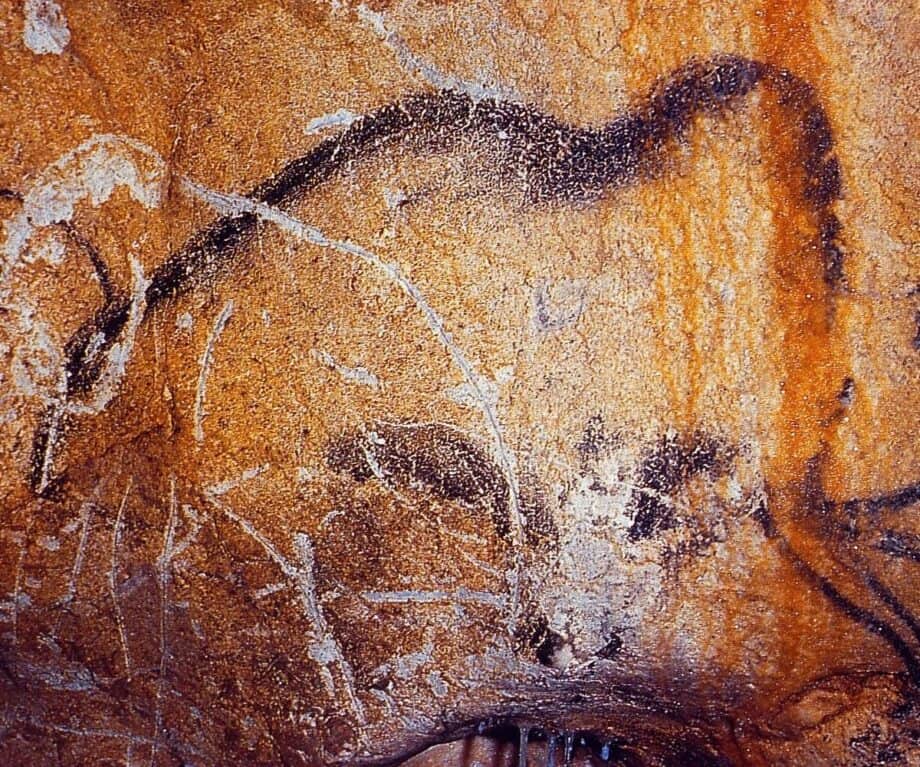

Some 36,000 years ago, homo sapiens, in the Aurignacian period, created more than 400 depictions of lions, mammoths, woolly rhinos, horses, and bison in the limestone caves of Chauvet.
Developed over a decade, Chauvet 2, is a replica of the original cave containing. According to the audio commentary, it is mankind’s “First Great Masterpiece.” Artists, working when the cave bears had moved out after hibernation, used finger-painting, charcoal, flint-stone points and blow-painting to show almost three-dimensional movement. Unlike many cave paintings they are not hunting scenes but probably a form of animism, attempting to make sense of the world around the artists.
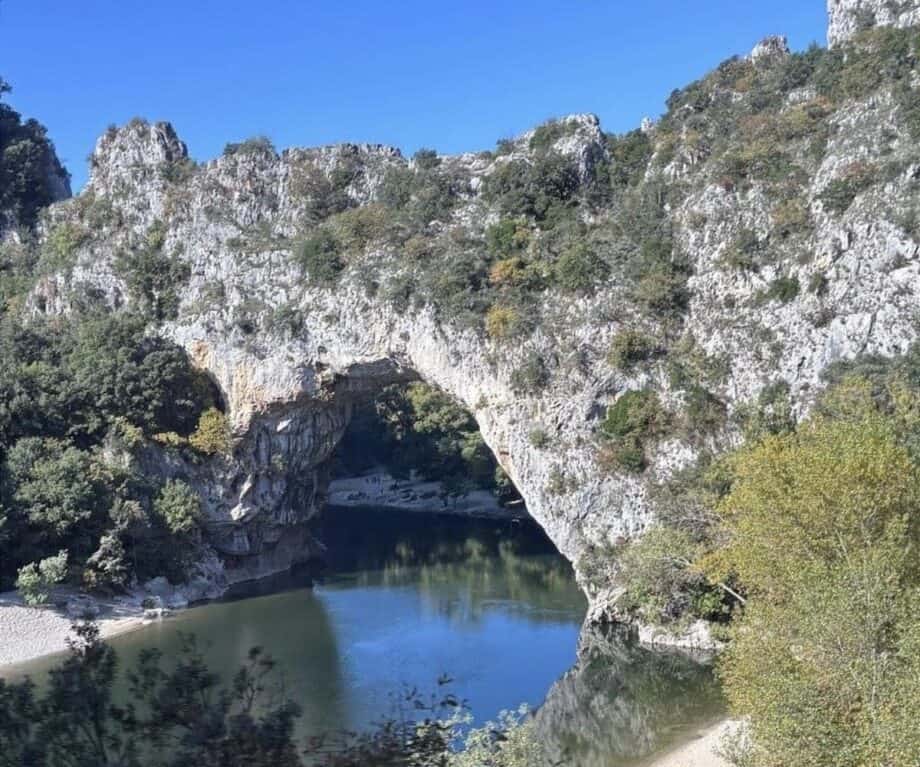

“The Ardeche Gorge is France’s answer to the Grand Canyon – but with better cheese,” our Cruise Director said as she gave her destination briefing. But nothing could prepare us for the natural miracle of the Pont d’Arc, a limestone bridge, standing 54 metres above the river. It is estimated that 124,000 years ago, water erosion broke through the rock to create the aperture.
The cost
In 2026, Riviera’s Rhone River cruises, for 8 days, will begin from £1,899 per person, based on two people sharing a cabin.


Mid-voyage verdict
It’s plain sailing for Riviera Travel’s guests. Flights, transfers, tours and admission tickets are all arranged, providing excellent value. Local guides are articulate, enthusiastic and exceptionally knowledgeable. Fortunately, they are disciplined too, getting us back on board in time for lunch or cocktails.
Disclosure: Our stay was sponsored by Riviera Travel.
Did you enjoy this article?
Receive similar content direct to your inbox.
.kadence-form-193324_b35617-ee .kadence-blocks-form-field.kb-submit-field { display: none; }
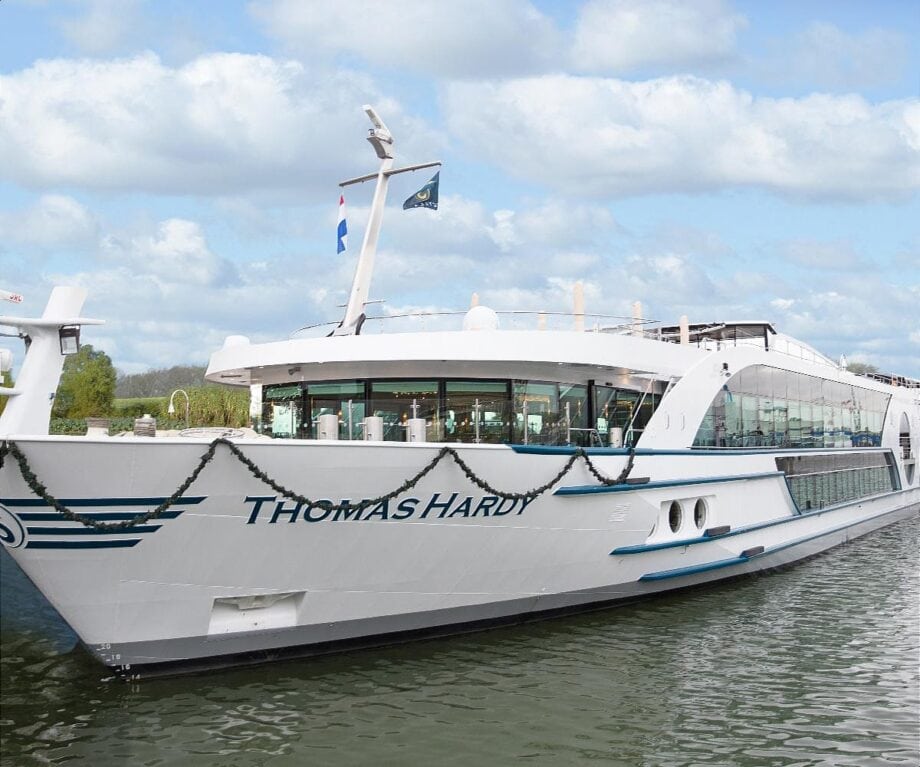






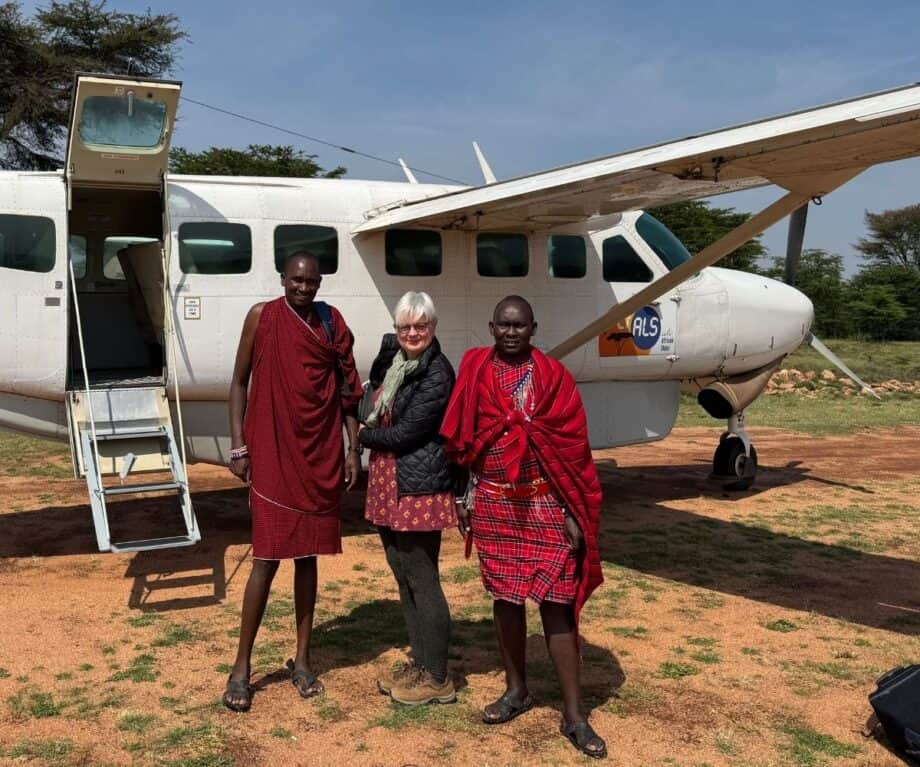
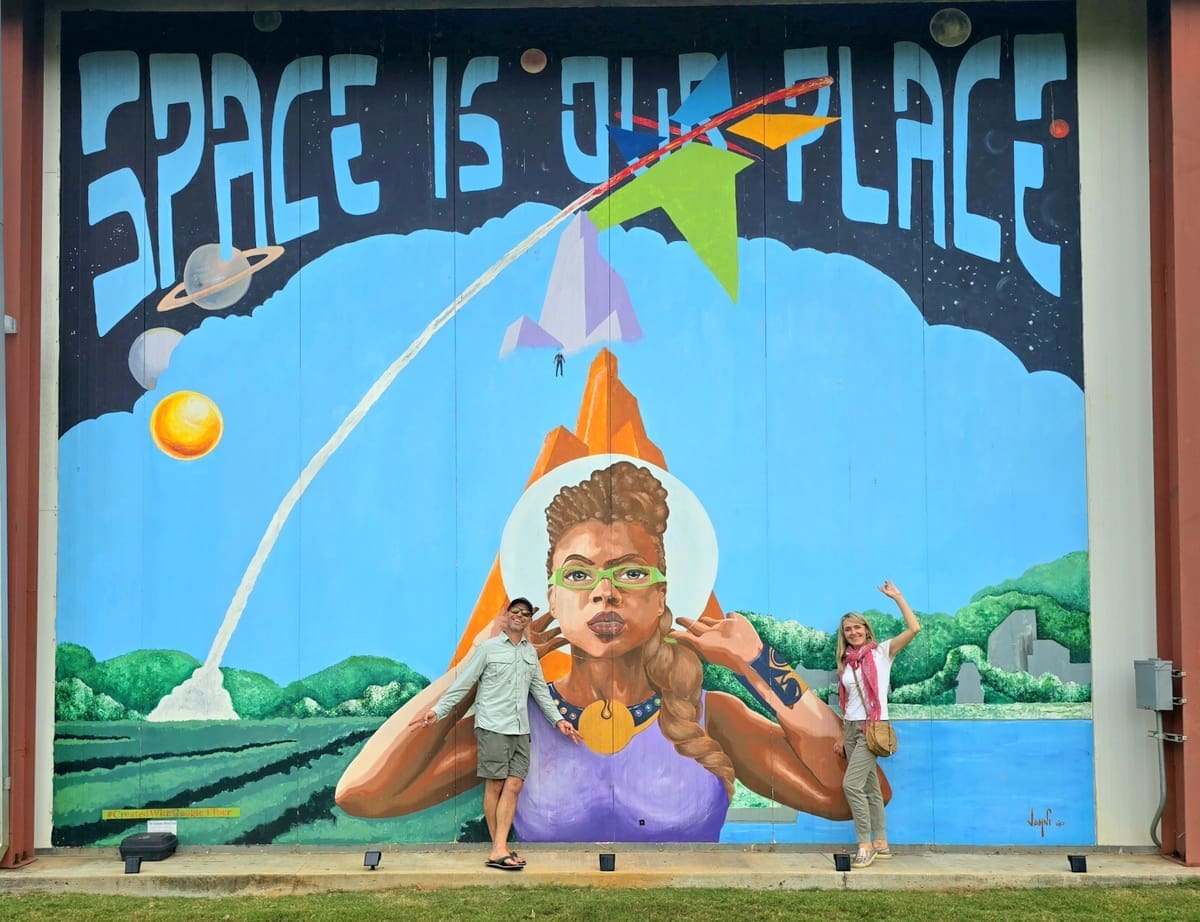











Post Comment